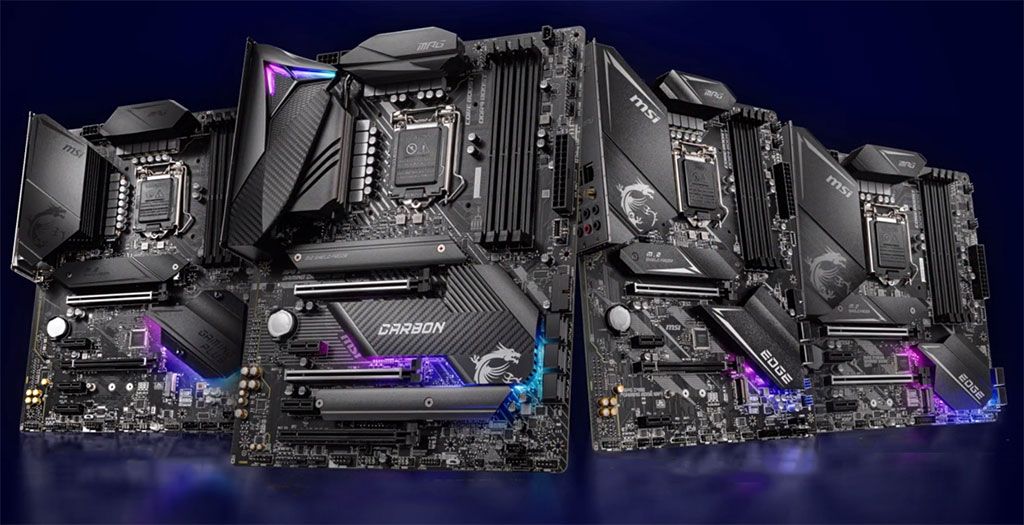Motherboard manufacturers unite against Intel's efficient PSU plans
Skepticism rises, and makers push back around the proposed ATX12V0 power standard.

In preparation for Intel's Alder Lake launch later this year, the company has been trying to convince manufacturers to move over to its more energy efficient ATX12V0 power standard, ready for these 12th generation, monster CPUs. But since this would involve big, and potentially awkward changes for manufacturers of both motherboards and PSUs, Intel has been met with a "united front of rejection" from both sides.
The proposed power standard would deliver just a single rail of 12V direct current through a 10-pin connector—as opposed to the current 24-pin standard—but would require a complete rehash of motherboard and component designs. Potentially an expensive one. Reports from Igor's Lab (via Sweclockers) note the concern around compatibility issues, and the potential to cause major rifts across the industry.
There's a real reluctance, then, to move away from the now 25-year-old current standard. Not only are manufacturers unhappy, but they cite users who may have recently purchased high-performance PSUs that could easily be repurposed in future PC builds, would also be unlikely to be accepting of the changes.
Buy a whole new, probably more expensive PSU, as well as a new mobo just for Intel Alder Lake? No thanks.

Best gaming motherboard: the best boards around
Best AMD motherboard: your new Ryzen's new home
Considering the first round of Alder Lake S CPUs are set for a late October/early November launch with K and KF models, along with the Z690 motherboard chipset, it doesn't look like the power standard will gain much traction before then.
Perhaps by the time the rest of the lineup is set to release around CES 2022, along with H670, B660, and H610 chipsets, there will have been an accord, otherwise this could end up being a lot of hard work wasted on Intel's part.
Keep up to date with the most important stories and the best deals, as picked by the PC Gamer team.

Screw sports, Katie would rather watch Intel, AMD and Nvidia go at it. Having been obsessed with computers and graphics for three long decades, she took Game Art and Design up to Masters level at uni, and has been rambling about games, tech and science—rather sarcastically—for four years since. She can be found admiring technological advancements, scrambling for scintillating Raspberry Pi projects, preaching cybersecurity awareness, sighing over semiconductors, and gawping at the latest GPU upgrades. Right now she's waiting patiently for her chance to upload her consciousness into the cloud.

